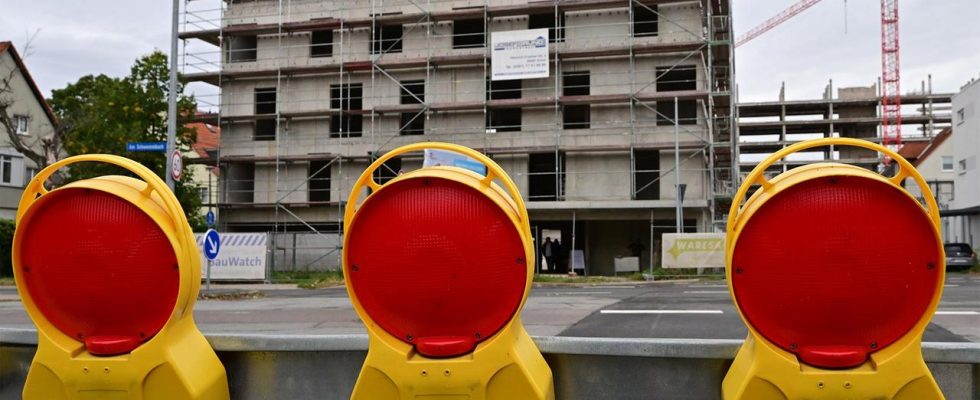The traffic light coalition has not repeated its ambitious housing construction goal for a long time. The verdict from the unions and tenants’ association is nevertheless devastating: the government’s housing policy is “inadequate”.
The German Tenants’ Association and the German Federation of Trade Unions (DGB) criticized the federal government’s housing policy at the halfway point of the legislative period as “inadequate” and warned of a worsening of the housing crisis. The two organizations said there was a lack of more than 700,000 affordable rental apartments, many of them in social housing.
Things got worse instead of better
They backed up their damning verdict with numbers: in 2022 alone, rents nationwide rose by an average of four percent. The federal government’s plan to build 400,000 new apartments annually, 100,000 of which are publicly funded, has been significantly missed in the past two years. Of the around 295,000 new apartments built in 2022, less than a third will be classic rental apartments and less than a tenth will be affordable social housing. In addition, building permits issued fell by 27.2 percent in the first half of 2023. Their conclusion: The situation on the housing market has deteriorated over the past two years.
A “social-political Scandal”
The tenants’ association and DGB are calling for massive public investment in social housing and energy-saving renovation. A rent freeze is also necessary. “In Germany, millions of tenants are overburdened with their housing costs and rents will continue to rise,” complained Lukas Siebenkotten, President of the Tenants’ Association. Today, 3.1 million of the 21 million renter households are already paying more than 40 percent of their income for basic rent and heating costs. According to the DGB and the Tenants’ Association, 5.5 million households cannot heat adequately.
DGB board member Stefan Körzell called the situation on the housing market a “socio-political scandal”. He accused the federal government of “obviously still not recognizing” the significance of the situation.
Green Party leader sees “mission”
Green party leader Ricarda Lang told the AFP news agency that she sees the balance sheet of the two organizations as a mandate to “move the federal government’s housing policy plan forward more quickly.” In addition to a higher pace of social housing construction, a tenant protection offensive for affordable housing is needed. “Families in particular need to be relieved quickly.” She also reiterated her party’s demands for tightening rent controls and caps as well as limiting index rents.
With index rental agreements, the rent is linked to the consumer price index; in return, landlords waive all other adjustments. According to the DGB and the Tenants’ Association, 30 percent of newly concluded rental agreements in the six largest German cities contain indexation. Siebenkotten described index rents alongside furnished living as “the new cost traps”.
A little praise
In addition to criticism, the Tenants’ Association and DGB also praised the housing benefit reform and the “Young Living” funding program, which was launched by the government with 500 million euros, as positive.
The Ministry of Construction is led by SPD politician Klara Geywitz. It’s not just the construction crisis that’s bothering her, the Berlin-Brandenburg Higher Administrative Court recently also demanded an immediate climate protection program for the building sector.

